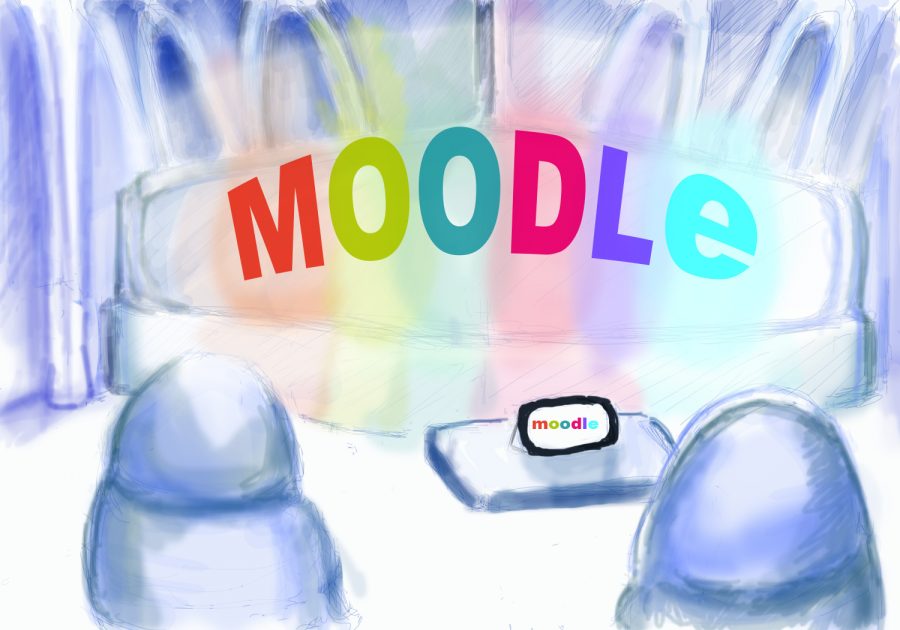Moodle outages to decrease with new host
Moodle
May 4, 2015
Starting in the Fall 2015 Semester, Moodle, the college’s learning management system, will be hosted and supported by Moodlerooms, an external service provider with additional storage, according to an April 22 email to staff and faculty from Stan Wearden, senior vice president and provost.
“We’re still using Moodle,” Wearden said. “It’s still the same learning management system we’ve always used, but what we’ve done is outsource the support for Moodle to Moodlerooms.”
Wearden said the increased support will keep the college’s learning management system running more frequently and efficiently than it is currently. Moodlerooms has guaranteed that the system will be up and running at least 90 percent of the time and outages will be scheduled, allowing for advanced notice, he said.
The basic functionality of Moodle will remain the same, although there will be a few new, advanced features, said David Noffs, instructional specialist at the Center for Innovation in Teaching Excellence.
“It’s still going to be Moodle,” he said. “The features that people are familiar with and that faculty have been using, like assignments and uploading files and discussion forums—most of those will stay the same.”
Noffs said CiTE will offer tutorials and workshops to help staff and faculty navigate the transition. Faculty will have the option to go through an online, self-directed training course or a facilitated online course, he said. CiTE is also in the process of scheduling face-to-face workshops, the date of which will become available in early May.
Faculty will be able to begin building their courses in the Moodlerooms-hosted LMS by the end of the current semester, according to Wearden’s email.
Moodlerooms has the potential to host online courses, Wearden said, although it is a possibility.
Diana Vallera, an adjunct professor in the Photography Department and president of P-Fac, the college’s part-time faculty union, said she was concerned that Moodle content previously created by professors and stored could be used to create online courses that would threaten faculty positions.
“This goes completely against Dr. Kim’s commitments to valuing higher education and valuing Columbia College admissions and experienced faculty,” Vallera said. “[This kind of model] treats faculty like they’re disposable and that you can just put anyone in to teach these large Moodlerooms with content that someone else created.”
Vallera said she thinks there will be legal battles in the future over intellectual property. She said P-Fac has already filed charges with the National Labor Relations Board and grievances against the college for other reasons. The particular issue of recycled Moodle content may fall under one of the current charges, she said, but until there is more information, P-Fac is not certain if additional charges will need to be filed.
“Honestly, it’s just shameful,” Vallera said. “[The administration] is trying to pirate all the work done by all faculty, not just part-time. They really have been trying to take anything they can from experienced faculty, and it’s destroying the mission, the college [and] all of the promises the administration made to this institution.”
According to Wearden, the college has no plans to recycle Moodle content into online courses.
Using previously created Moodle content for online courses would not be effective, he said. Online learning content is typically designed by the professor teaching the course, who works with an instructional designer or educational technologist to prepare an online course, he said.
“We don’t just take content that’s already on Moodle and repurpose it for another professor,” he said. “It has to be that there’s a professor that is responsible for the content who teaches the course.”
If the college were to pursue online courses through Moodlerooms, no professors would lose teaching opportunities as a result, Wearden said. Every online class needs an instructor because online learning is not purely automated instruction, he said.
“[Online courses] still need an instructor who is running the class and is responsible for the class,” Wearden said.








